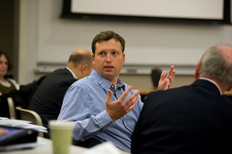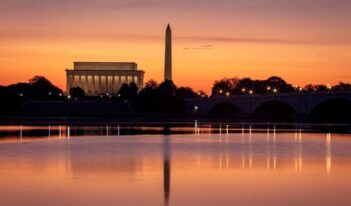
Leading scholars analyze whether regulation has suffered a breakdown.
Can regulators do anything right these days?
That seems to be a question on a lot of people’s mind lately.
On the one hand, the recent financial crisis and Gulf Coast oil spill, not to mention mine and pipeline explosions and even contaminated eggs, raise questions about whether regulation adequately protects the public.
On the other hand, persistent accusations about so-called job-killing regulations suggest they might be too restrictive, suppressing a much-needed economic recovery.
Last Thursday and Friday, the Penn Program on Regulation (PPR) carefully examined questions like these at a conference held at Penn Law. The conference on Regulatory Breakdown? The Crisis of Confidence in U.S. Regulation was organized by PPR Director Cary Coglianese and featured original papers prepared by leading scholars from across Penn and around the nation.
Judging from the calamities and complaints about regulation that frequently appear in the news, it could seem like the U.S. regulatory system has completely broken down. But scholars gathered at the Penn conference took a more analytic view. The existence of a series of individual breakdowns, some emphasized, does not necessarily equate to an overall breakdown of the entire system.

Professor Susan Wachter
Moreover, how people define regulatory failure will be shaped by their political ideologies – which helps explain the two contrasting, polarized views about regulatory failure prevalent in America today. The increasingly partisan-leaning media may also tend to exacerbate polarization, according to a paper discussed at the conference.
The Regulatory Breakdown? conference also emphasized the challenges regulators confront when regulating complex, uncertain, and ever-changing business activities. Regulators often lack the information they need.
“We cannot rule out the possibility that some catastrophes will happen even when regulators act with diligence,” said Coglianese. “As long as risky activities are regulated but not banned, there will always remain at least some small probability of a disaster.”

Professor Lori Bennear
Conference attendees discussed strategies to try to reduce further the already low probabilities of disastrous events. In addition to innovative regulatory strategies, conference participants considered the possibility of shifting more liability to responsible actors. One conference commentator noted that in Chile construction firms are held liable for earthquake damage, so they are reportedly much more careful to protect their buildings from earthquake vulnerability.
More than two dozen scholars participated in the panel discussions. The conference also included a welcome by Dean Michael Fitts of Penn Law and a dinner keynote by Dean Richard Revesz of NYU Law, both of whom are experts in administrative law and policymaking. Revesz focused his remarks on whether cost-benefit analysis of regulation still matters in a “hyper-partisan” era of American politics.
“For a long time, the field of regulation was something of a sleepy backwater, of interest mainly to lawyers and policy analysts,” said PPR’s Coglianese. “But today, with real, everyday implications on the line, regulation has become a political battlefield.”

Penn Law Professor Ted Ruger
The papers delivered at the conference will be published by the University of Pennsylvania Press in 2012, in a volume edited by Professor Coglianese.
Presenters at the conference included Jonathan Baron (Penn Psychology), Matthew Baum (Harvard Kennedy School), Lori Bennear (Duke Nicholas School), Bill Bratton (Penn Law), Jonathan Klick (Penn Law), Susan Moffitt (Brown University Political Science), Roberta Romano (Yale Law), Ted Ruger (Penn Law), Adam Levitin (Georgetown Law), and Susan Yackee (Wisconsin Political Science).
Commentators included Richard Berk (Penn Criminology/Statistics), Adam Finkel (Penn Program on Regulation), Jill Fisch (Penn Law), Robert Kagan (UC Berkeley Law), Howard Kunreuther (Wharton), Jerry Mashaw (Yale Law), John Mendeloff (Pittsburgh/RAND), and David Zaring (Wharton).



